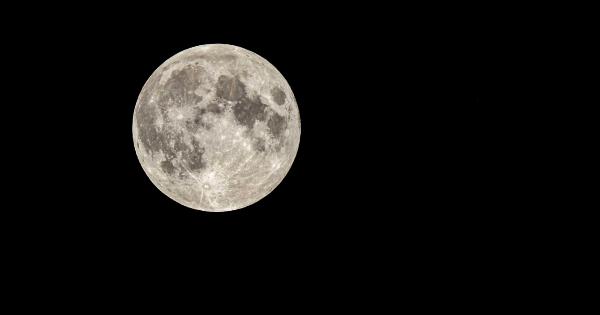Many people are aware that natural light has a positive impact on physical and mental well-being. It is no surprise that spending time outdoors and getting exposure to sunlight can have various health benefits, including weight management.
In this article, we will explore how natural light affects weight and discuss the optimal exposure time for maximum benefits.
The Impact of Natural Light on Weight
Natural light plays a crucial role in regulating our internal body clock, also known as the circadian rhythm. This internal clock helps the body maintain various physiological processes, including metabolism.
Research has found that exposure to natural light, especially in the morning, helps reset the body’s circadian rhythm and can improve weight management.
A study published in the International Journal of Obesity found that individuals exposed to bright light in the morning had lower body mass indexes (BMIs) compared to those who received less light exposure.
One theory is that exposure to natural light helps regulate appetite hormones, such as leptin and ghrelin, which play a role in hunger and satiety.
When our circadian rhythm is disrupted due to inadequate exposure to natural light, it can lead to hormonal imbalances and increased hunger, which may contribute to weight gain.
Optimal Exposure Time
While the benefits of natural light on weight management are evident, it is essential to determine the optimal exposure time to maximize these benefits.
The optimal exposure time can vary depending on various factors, such as geographical location, weather conditions, and individual factors.
Generally, experts recommend getting at least 30 minutes of sunlight exposure in the morning. This exposure should be direct, meaning it should not be filtered through glass or sunscreen.
The morning sunlight helps regulate the body’s circadian rhythm and provides a boost of vitamin D, which is essential for bone health and may also influence weight management.
Additionally, spending time outdoors throughout the day and getting regular breaks from indoor artificial lighting can further enhance the benefits of natural light on weight management.
Regular breaks outside can help improve energy levels, mood, and overall well-being, which can indirectly contribute to better weight management.
Factors to Consider
Several factors need to be considered when determining the optimal exposure time to natural light for weight management:.
1. Geographical Location and Climate
The amount and intensity of sunlight can vary depending on your geographical location and climate.
Individuals living closer to the equator generally receive more direct sunlight, while those in higher latitudes may have limited sunlight exposure, especially during winter months. Adjust your exposure time accordingly to make the most of available sunlight.
2. Time of Day
The time of day also affects the intensity and quality of natural light. Morning sunlight is usually the most beneficial as it helps regulate the circadian rhythm and kickstarts metabolism.
However, spending time outdoors throughout the day can still provide numerous benefits, so try to incorporate outdoor activities whenever possible.
3. Individual Factors
Each individual may respond differently to natural light exposure. Factors such as skin type, medication use, and existing health conditions can influence how the body reacts to sunlight.
It is crucial to listen to your body and consult with a healthcare professional if you have any concerns.
Tips for Maximizing Natural Light Exposure
To make the most of natural light exposure for weight management, consider the following tips:.
1. Rise with the Sun
Avoid sleeping in too late and try to wake up with the sunrise. This will help synchronize your internal body clock and maximize exposure to natural light in the morning.
2. Take Frequent Outdoor Breaks
Instead of spending the entire day indoors, take regular breaks outside.
Whether it’s walking during lunch break or enjoying outdoor activities during the weekend, every opportunity to soak up natural light can contribute to better weight management.
3. Ditch the Artificial Light
Avoid excessive exposure to artificial light, especially during the evening. Artificial light from screens and indoor lighting can disrupt your circadian rhythm and interfere with quality sleep, which can negatively impact weight management.
Conclusion
Spending time outdoors and getting exposure to natural light can positively influence weight management. The optimal exposure time may vary depending on several factors, including geographical location, time of day, and individual factors.
Incorporating regular outdoor breaks and prioritizing morning sunlight can help regulate the body’s circadian rhythm and contribute to overall well-being.































